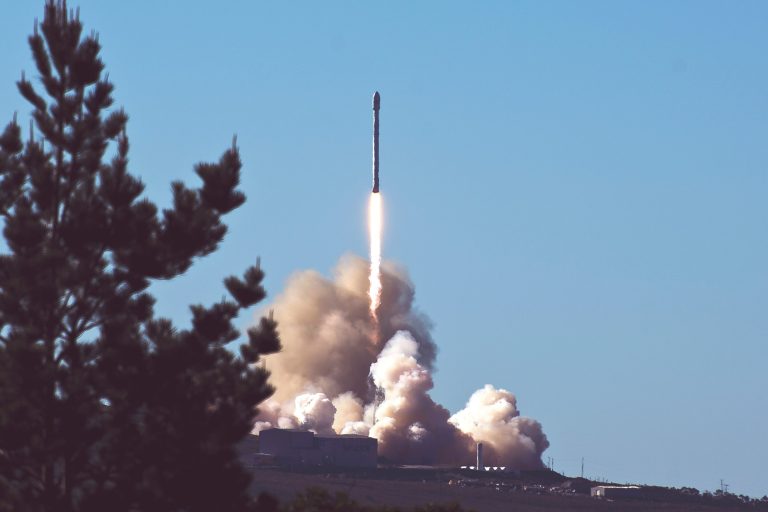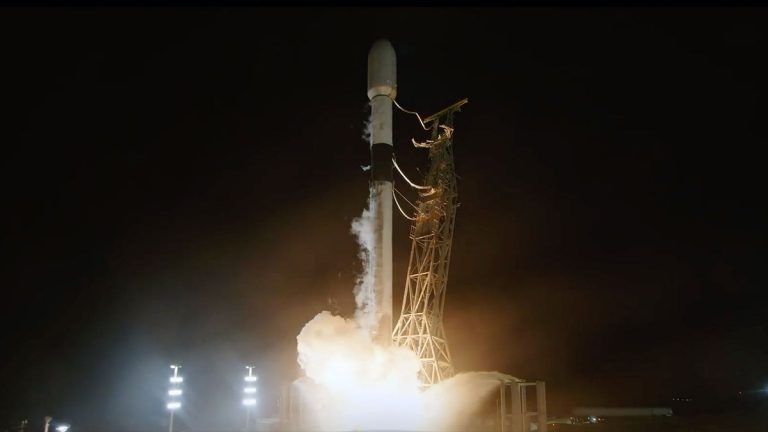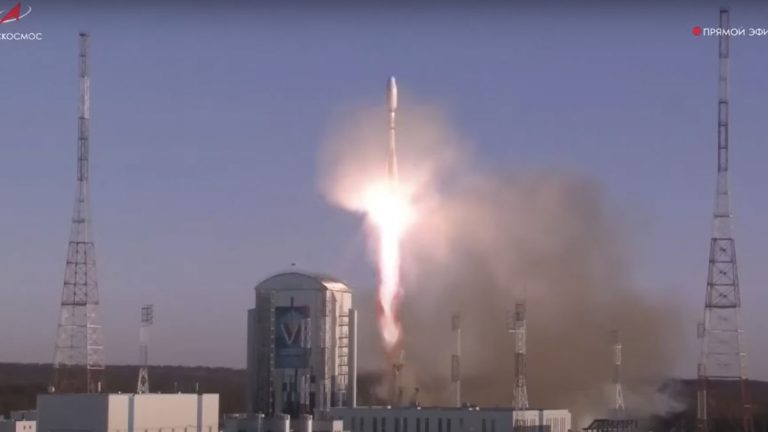
Stratolaunch launches 1st rocket-powered flight of hypersonic prototype from world’s largest airplane (Image Credit: Space.com)
Stratolaunch, a company that aims to launch hypersonic vehicles from the world’s largest airplane, aced its first rocket-powered flight on Saturday (March 9) with a historic test over the Pacific Ocean.
The massive Stratolaunch carrier plane “Roc” launched its expendable prototype vehicle Talon-A1 (T-A1) during a test flight that took off from the Mojave Air and Space Port in California’s Mojave Desert. The dart-shaped T-A1 vehicle was under the center of the Roc’s vast 385-foot (117 meters) wing during the takeoff.
TA-1 is an advanced air-launched vehicle designed to serve as a private hypersonic testbed that launches from the huge, dual-fuselage Roc carrier plane, which was built by Scaled Composites for Stratolaunch. Once achieving sufficient altitude above 20,000 feet, the curve-nosed hypersonic vehicle is dropped from “Roc’s” center wing and its Ursa Major-built Hadley rocket engine is designed to ignite to propel vehicles at superfast hypersonic speeds.
“Today was a great day for the Stratolaunch team,” Stratolaunch President Zachary Krevor said in a statement. “While I can’t share the specific altitude and speed TA-1 reached due to proprietary agreements with our customers, we are pleased to share that in addition to meeting all primary and customer objectives of the flight, we reached high supersonic speeds approaching Mach 5 and collected a great amount of data at an incredible value to our customers.”
T-A1’s Hadley rocket engine “met all of our expectations,” Krevor said in a press teleconference, adding that it propelled the vehicle for about 200 seconds during the test flight.

Roc is currently the world’s largest aircraft, weighing in at 500,000 pounds, that took its own milestone inaugural flight in April 2019. Stratolaunch’s list of main objectives for the TA-1 flight test included deploying a safe air-launch release of the TA-1 vehicle, successful engine ignition, Mach 5 acceleration, sustained altitude climb, and a controlled water landing.
“Our goal with this flight was to continue our risk reduction approach for TA-2’s first reusable flight and be steadfast on our commitment of delivering maximum value to our customers,” Krevor said. “We are excited to review the data from today’s test and use it as we plan our next steps toward TA-2’s first flight later this year.”
Stratolaunch did try to recover some remains of the T-A1 vehicle from the Pacific after the flight, but this flight was always aimed at being expendable, Krevor said.

Stratolaunch is the unique air-launch enterprise created in 2011 by the late Microsoft co-founder Paul Allen. At the time, Allen hoped to use the huge Roc carrier plan to launch satellites and spacecraft into orbit during high-altitude flights, with early talks involving SpaceX and later Orbital Sciences (which was eventually acquired by Northrop Grumman).
After his 2018 death, Cerberus Capital Management acquired Stratolaunch, relocating its nexus of operations from Seattle to the Mojave Air and Space Port and shifted its focus to hypersonic vehicles. Their ongoing mission includes advancing high-speed technology through innovative design, manufacturing, and operation of world-class aerospace vehicles.
In addition to further TA-1 testing, Stratolaunch is now ramping up its plans to manufacture the TA-3, the next fully-reusable vehicle in their Talon-A product roster.
The California-based aerospace firm is also starting modifications on a second air-launch platform, the Spirit of Mojave, a customized Boeing 747-400 they bought after Virgin Orbit‘s bankruptcy liquidation sale in 2023.








